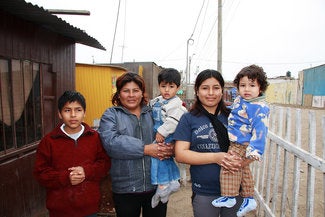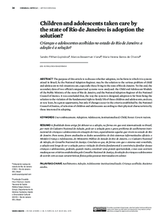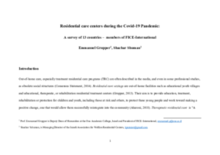

Displaying 71 - 80 of 332
The purpose of this study is to examine the association between parental migration and adolescents’ styles of close relationships with parents, friends and romantic partners.
This webinar builds up on the results of the research More Autonomy, More Rights (2020) Coordinated by CSO Doncel, in the representation of the Latin American Network of Care Leavers and supported by UNICEF LACRO and Hope and Homes for Children.
The current study aims to evaluate relationships between child victimization and child resilience with a particular focus on caregiver and family promotive factors.
In this How We Care series webinar, Family for Every Child members CPTCSA (Philippines), Paicabi (Chile) and Butterflies (India) come together to discuss the work they are doing to address child sexual abuse in their contexts.
The purpose of this article is to discuss whether adoption, in the form in which it is systematized in Brazil, by the National Adoption Register, may be the solution to the serious problem of child and adolescent in risky situations of care, especially those living in the state of Rio de Janeiro.
This webinar includes presentations from panelists in Latin America discussing early childhood programming in the region, particularly in light of the COVID-19 pandemic.
Este webinario presenta la nota técnica de protección de los niños contra la violencia, el abuso y la negligencia en casa.
FICE Israel decided to initiate a short survey to document and share information about the way different countries handled their policies and practices in residential care facilities during that period. This report presents findings and some conclusions from this primary survey.
This child-led research initiative was conducted under the umbrella of World Vision’s DEAR project (Development Education and Awareness Raising) and the Sustainable Development Agenda 2030. The study explores explore SDG 16.2, the goal that focuses on the issue of ‘abuse, exploitation, trafficking, and all forms of violence against and torture of children’.
The first aim of this study was to examine differences in the socio-emotional functioning of adopted and institution-reared children in Chile. The second aim of this study was to examine the influence of adoption related variables on the psychological adjustment of adopted children.



